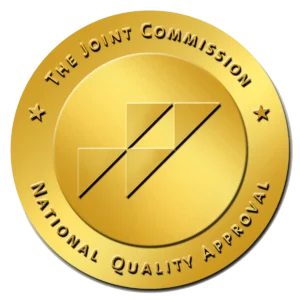Detox is when substances leave a person’s body after they have stopped drinking or using drugs. At The Pavilion, in Williamsburg, Virginia, we help people with substance use disorders to safely navigate detox, so they can move forward with their recovery journey.
Withdrawal Symptoms
One of the most common experiences during detox is withdrawal. It can vary from being unpleasant to life-threatening, depending on the substance involved and the severity of the person’s addiction. Some of the most common withdrawal symptoms include:
Alcohol Withdrawal Symptoms:
- Anxiety
- Fever and sweating
- Hallucinations
- Nausea and vomiting
- Insomnia
- Tremors
- Seizures
Benzos Withdrawal Symptoms:
- Sweating
- Muscle cramps
- Nausea and vomiting
- Headaches
- Dizziness
- Seizures
Opioids Withdrawal Symptoms:
- Stomach cramps
- Sweating
- Rapid heart rate
- Nausea and vomiting
- Insomnia
- Dilate pupils
- Muscle/joint pain
Amphetamines Withdrawal Symptoms:
- Psychosis
- Depression
- Hallucinations
- Irritability
- Excessive sleeping
- Large appetite
Making Withdrawal Easier
The withdrawal stage can be dangerous if the person tries to stop cold turkey instead of tapering, particularly if the person has been using:
- Opioids
- Benzodiazepines
- Alcohol
Detox is often made easier and safer by tapering off of drugs or using prescription medications to ease the process. Detoxing from alcohol usually takes a few days, whereas the taper period for other substances can take weeks or months. Medical supervision can help to address withdrawal symptoms that do arise.
Where to Detox
Detox can happen in a number of different ways:
- At home, without medical supervision – this may be an option for people who are otherwise healthy and don’t have severe withdrawal symptoms. It may be the preferred option for a person who does not have insurance and cannot afford to pay for detox. However, detoxing at home is associated with higher risk of relapse. At a minimum, people detoxing at home should try to have family or friends with them to rush them to the hospital in case something goes wrong.
- Hospital – if something goes wrong, you could utilize the ER. If you have a history of severe withdrawal symptoms, you might find it helpful to arrange in advance to detox in a hospital setting, where a medical professional can monitor your vitals and ensure you receive proper hydration and nutrition.
- Outpatient, with medical supervision – your detox may not need more than an occasional check-in from a medical professional or day treatment at a facility that offers outpatient care. This could allow you to stay in your home while getting support and medication-assisted treatment.
- Inpatient treatment – this option, which we offer at The Pavilion, is typically available for people who need the highest level of care and medical monitoring. After the detox phase ends, patients are sometimes able to step down to a less intensive level of care, depending on the results of the assessment. Our detox program includes:
- Evaluation
- Supportive environment
- Medication management
- 24/7 medical monitoring
- Group therapy
- Psychoeducation
- Case management
- Discharge and aftercare planning
Detox is Not a Cure
Detox is the first step in recovery, but it is not a cure for addiction and it is not a complete treatment. It is just the first step on a much longer journey. Detox is often followed by a lot of ups and downs:
- Entering inpatient or outpatient treatment
- A “pink cloud” phase categorized by euphoria, hope and optimism
- Participating in a recovery group like AA, NA or SMART Recovery
- Finding a sponsor and other sober supports
- Participating in therapy
- Repairing relationships that were damaged during active addiction
- Post-acute withdrawal syndrome (PAWS) with symptoms like:
- Difficulty focusing/memory issues
- Cravings
- Sleep disturbances
- Fatigue
- Moodiness
- Anxiety
- Depression
- Sober living
How to Deal with the Rollercoaster of Newly Sober Life
Structure and routine are crucial to maintaining long-term recovery. This looks different for every person, but often includes things like:
- Work/school – this can fill a lot of time, provide a sense of accomplishment, and make it easier to build a strong support system.
- Spiritual time – attending religious services, reading texts related to your faith tradition, meditating, or engaging in mindfulness exercises can nourish the spirit.
- Volunteering – there are many different ways to volunteer, depending on your interests, skills, and availability. Many people volunteer with children, animals, senior citizens, or with vulnerable populations.
- Giving back to the recovery community – running a meeting, sharing your story, sponsoring someone who is newer to recovery, or driving people to meetings are all ways you can give back.
Getting sober is scary and it is difficult, but it is also worth it to give yourself the life you deserve and want. At The Pavilion, we treat patients who are experiencing mental health and substance use disorders in our inpatient and outpatient treatment programs. Whenever possible, we include families in our work, so they can become the best possible support for our clients.






